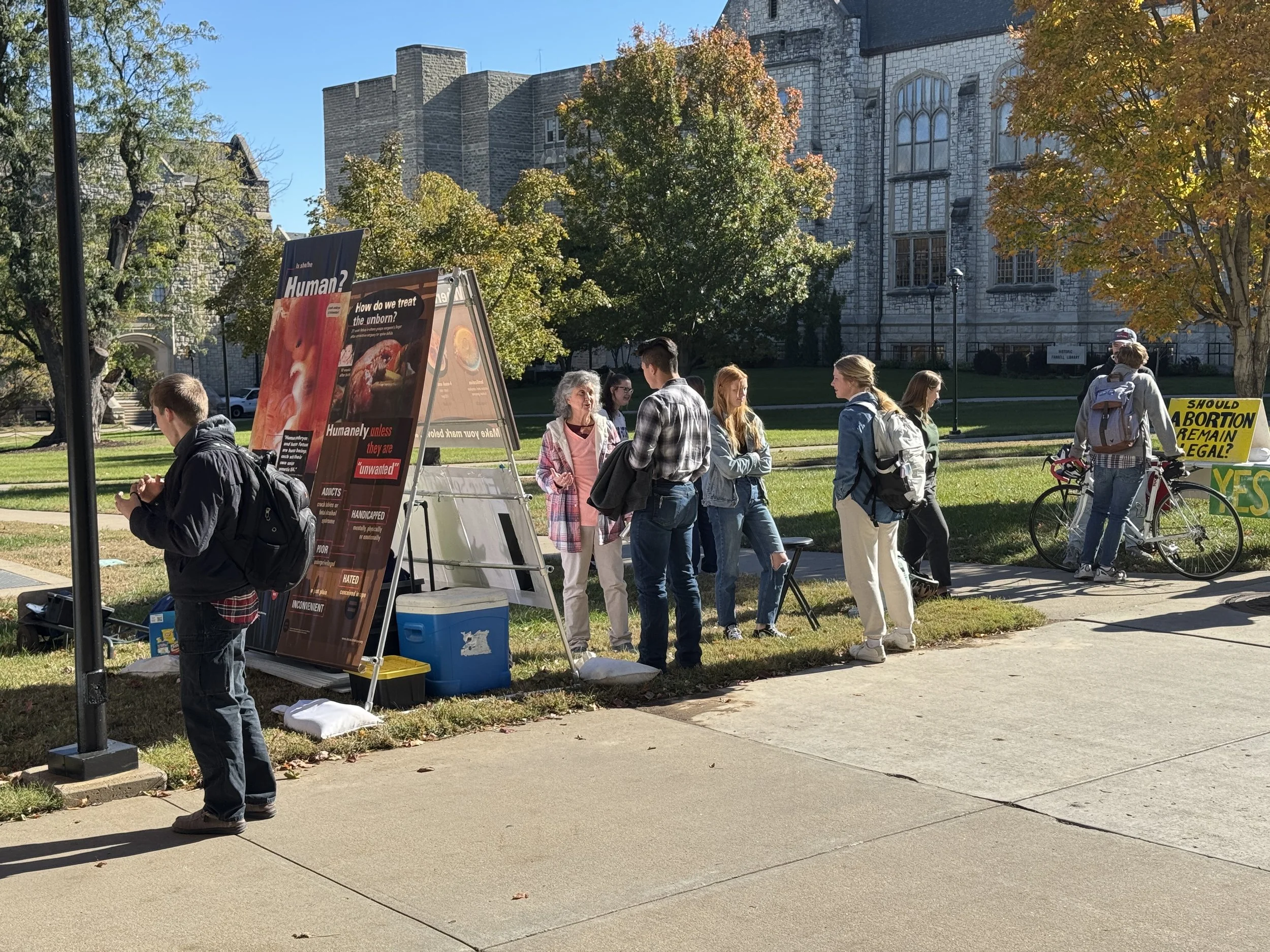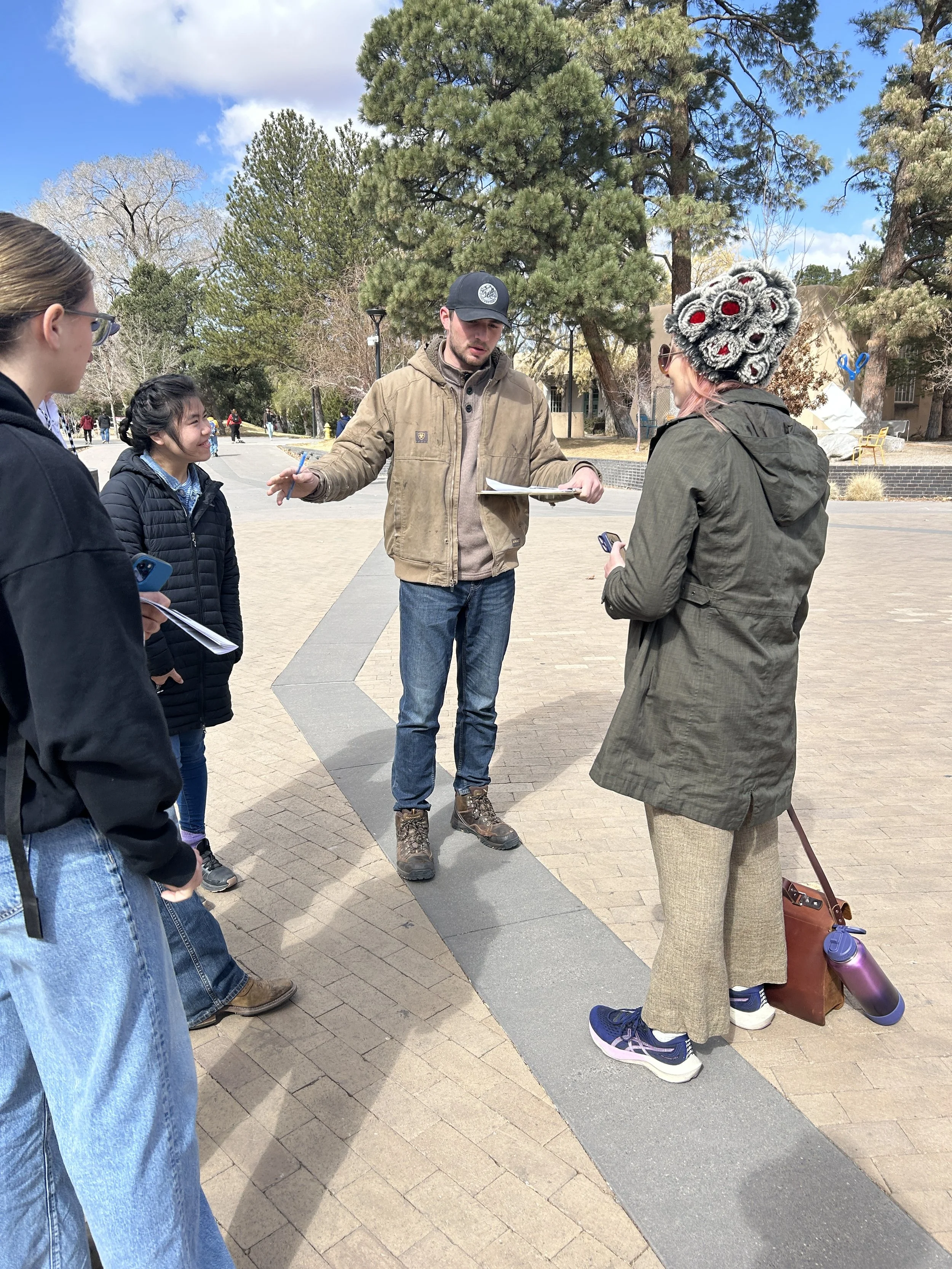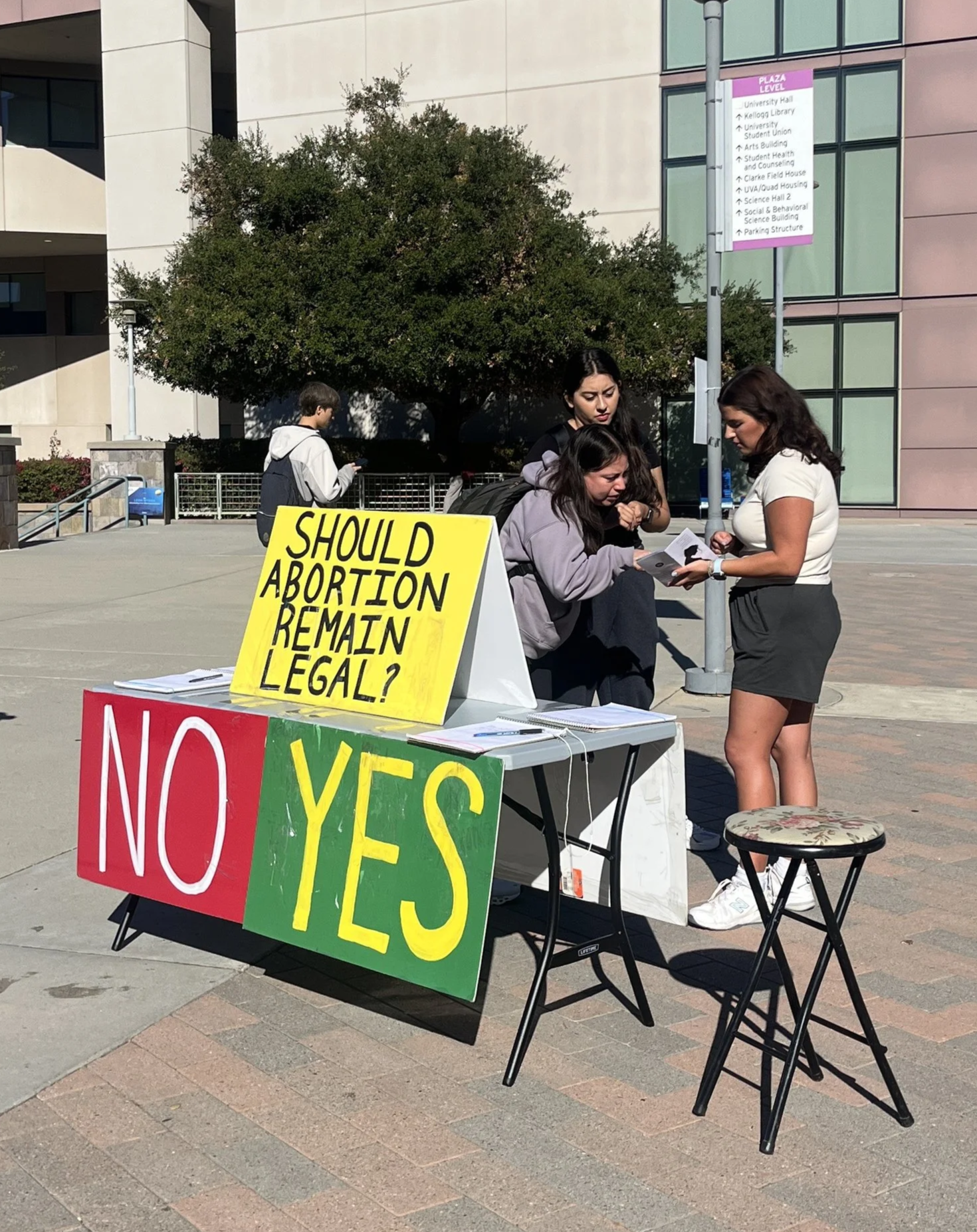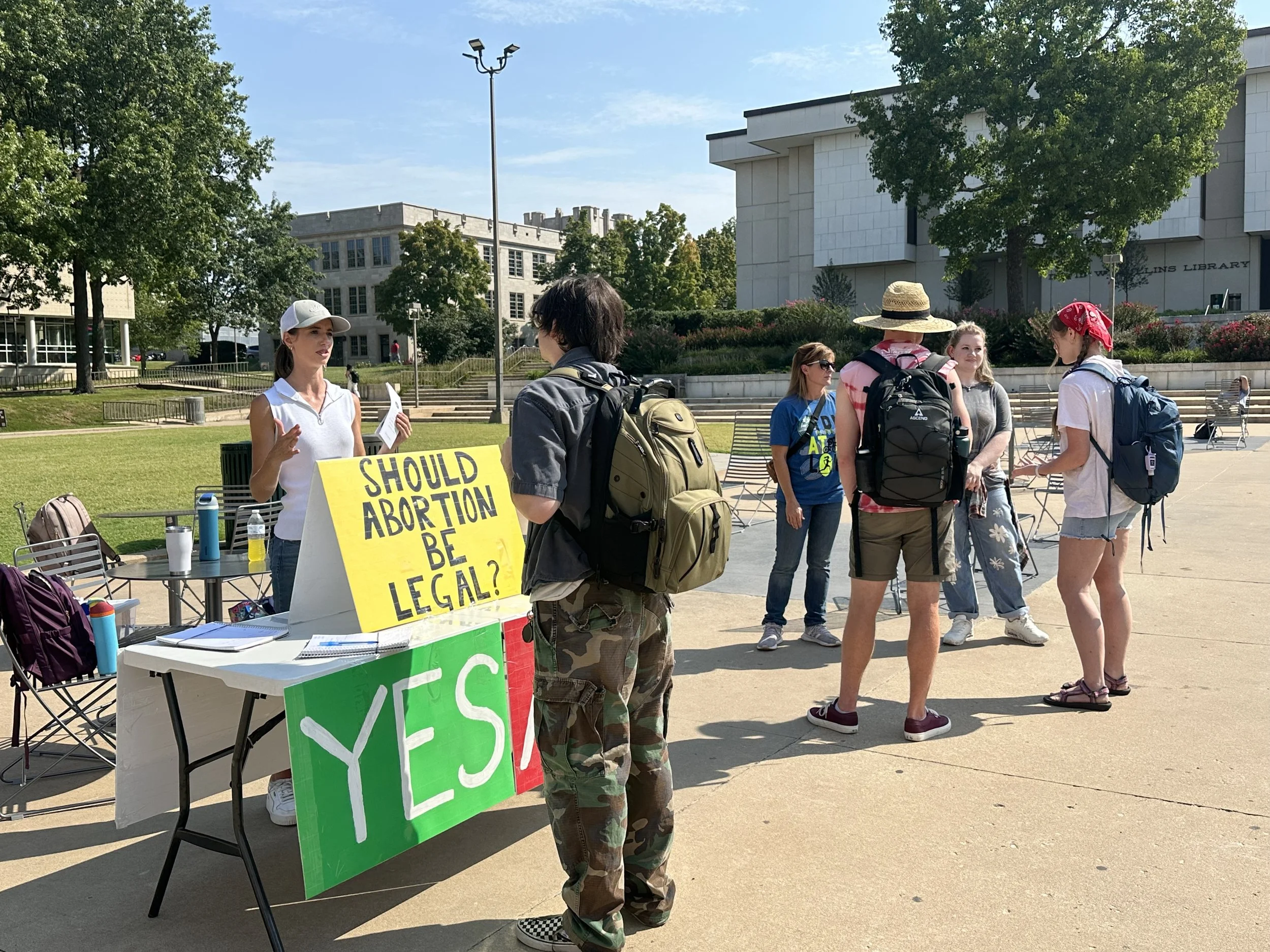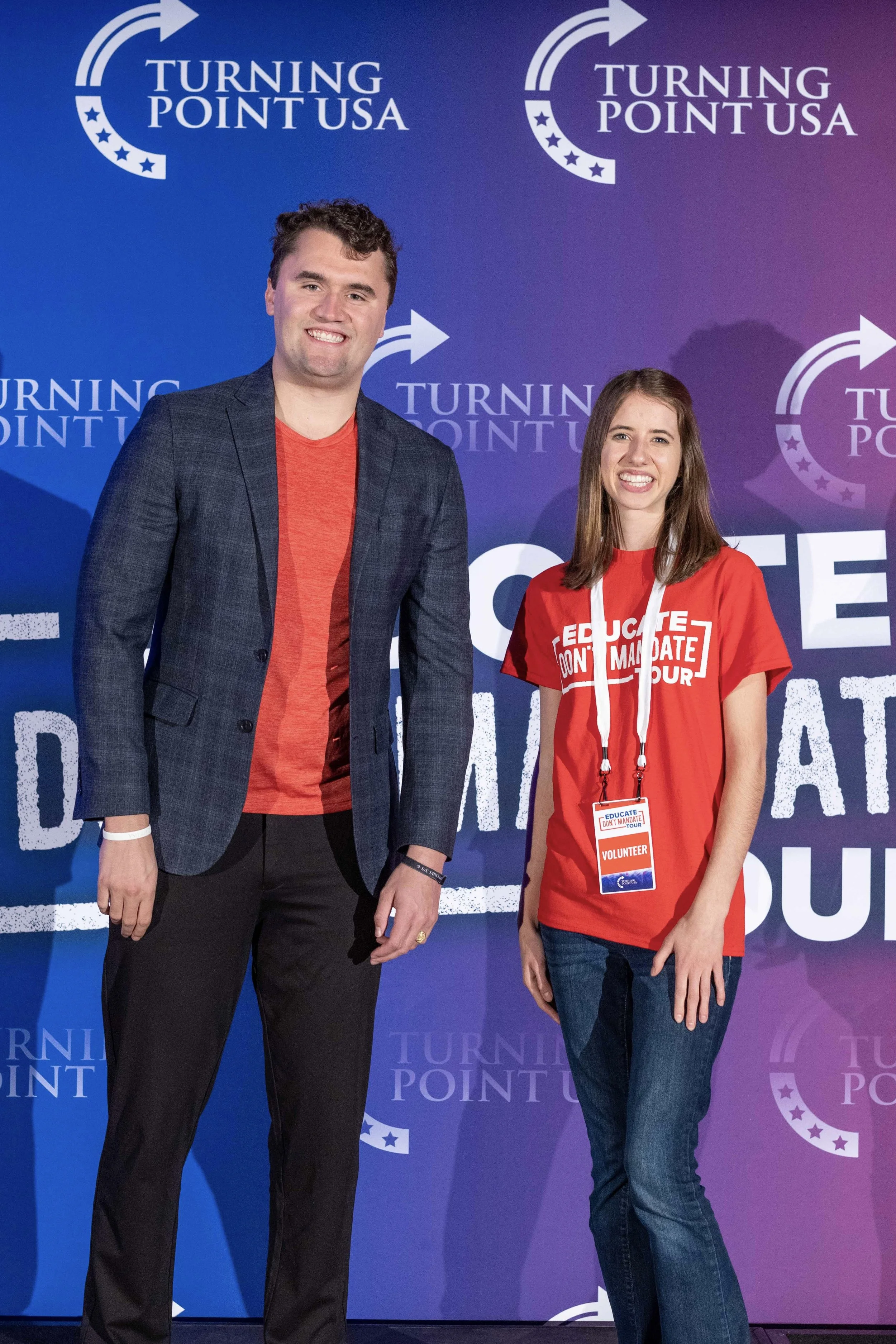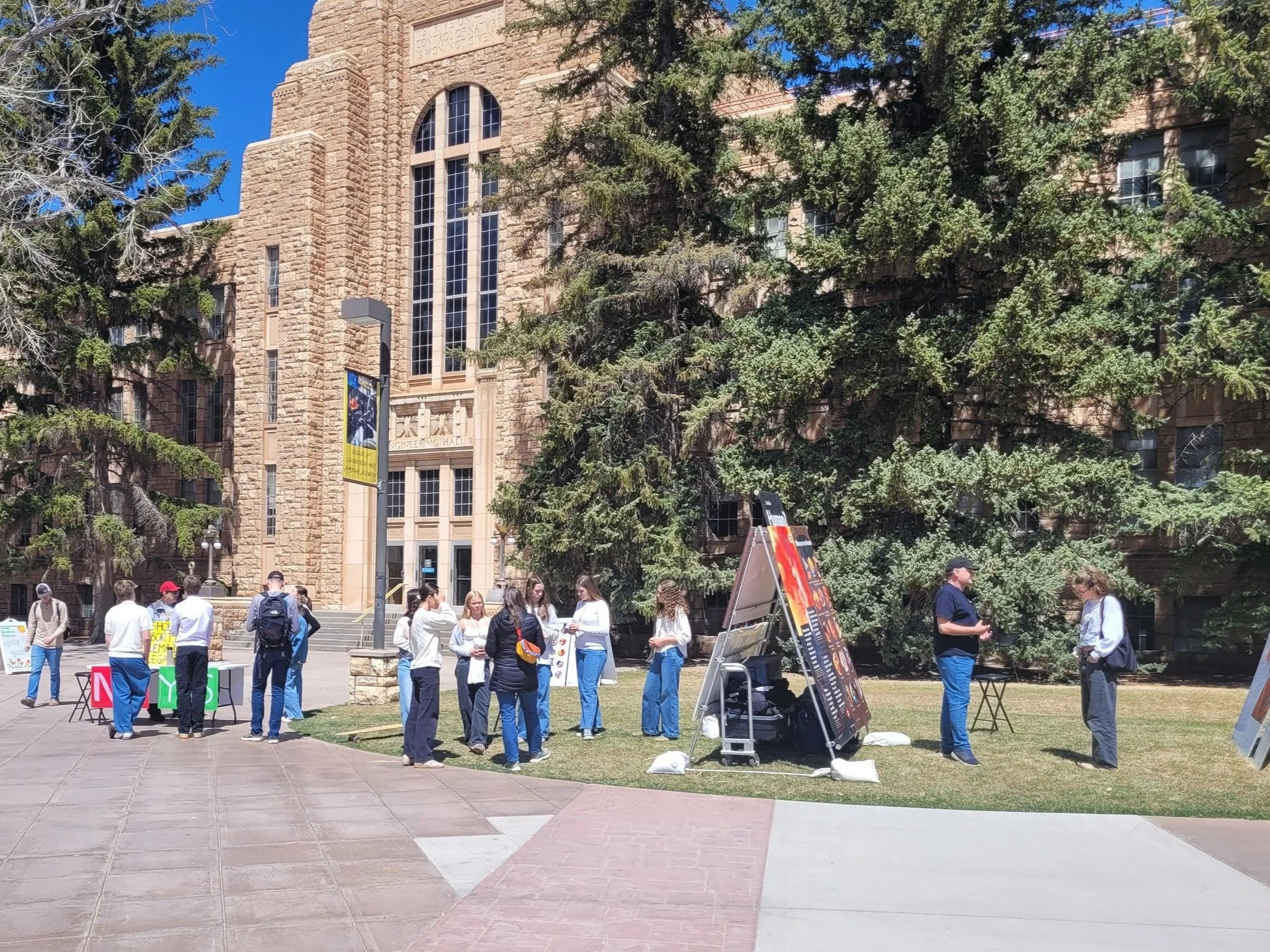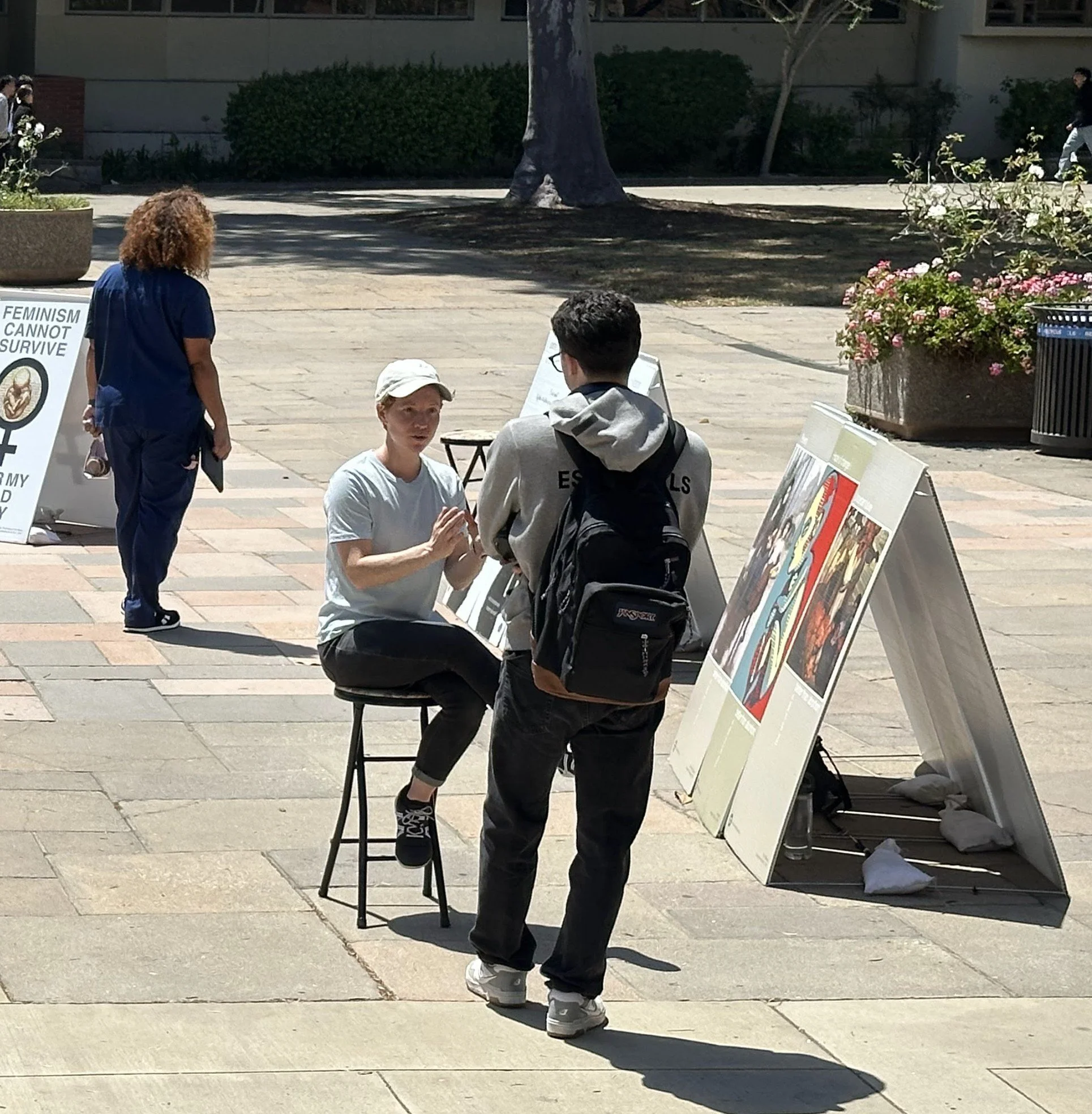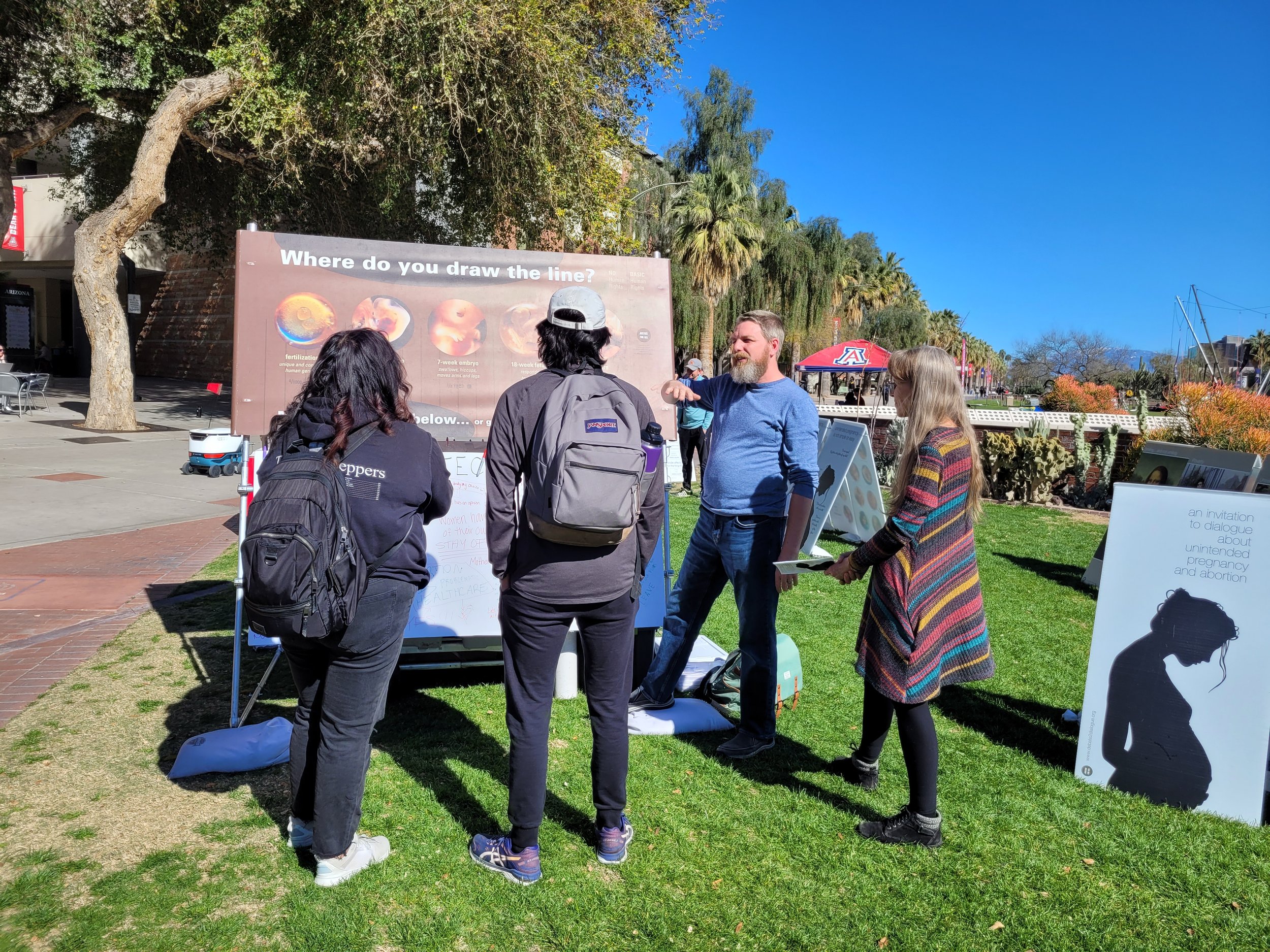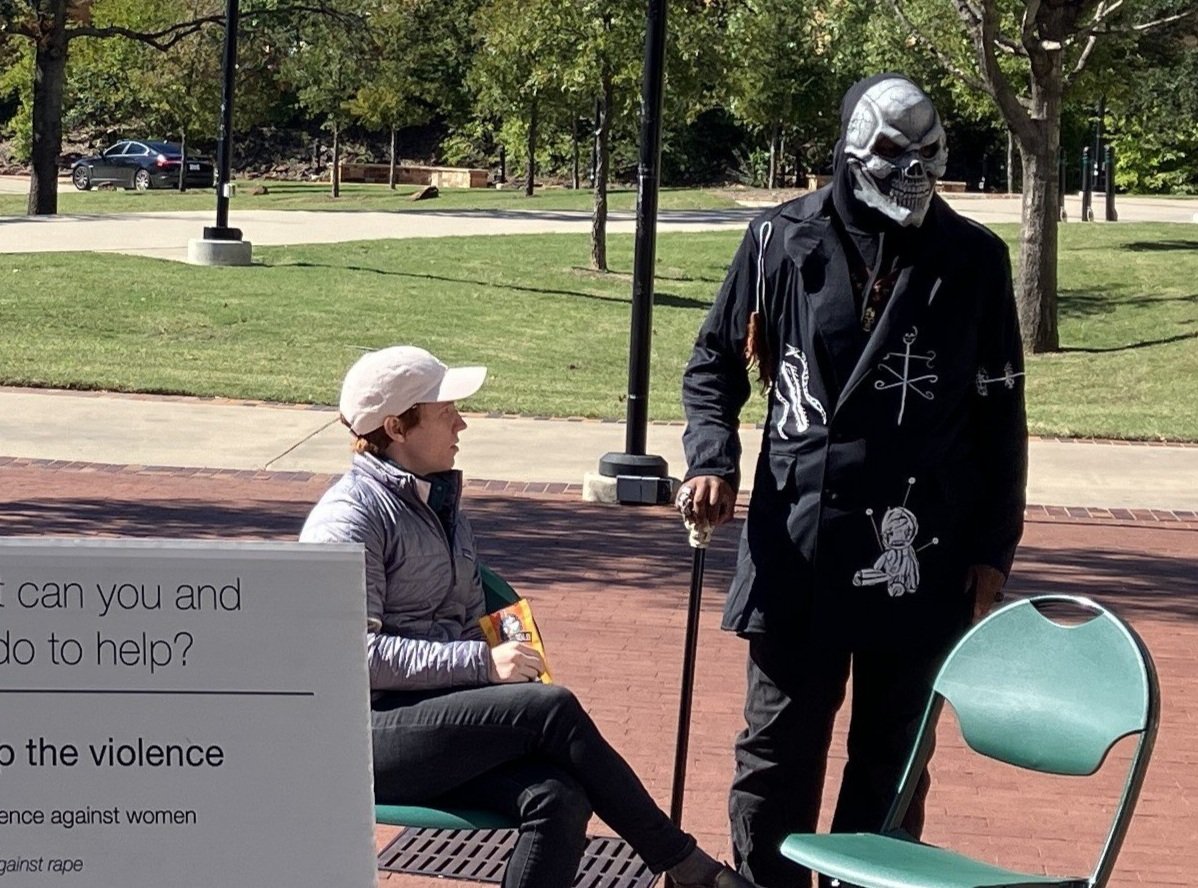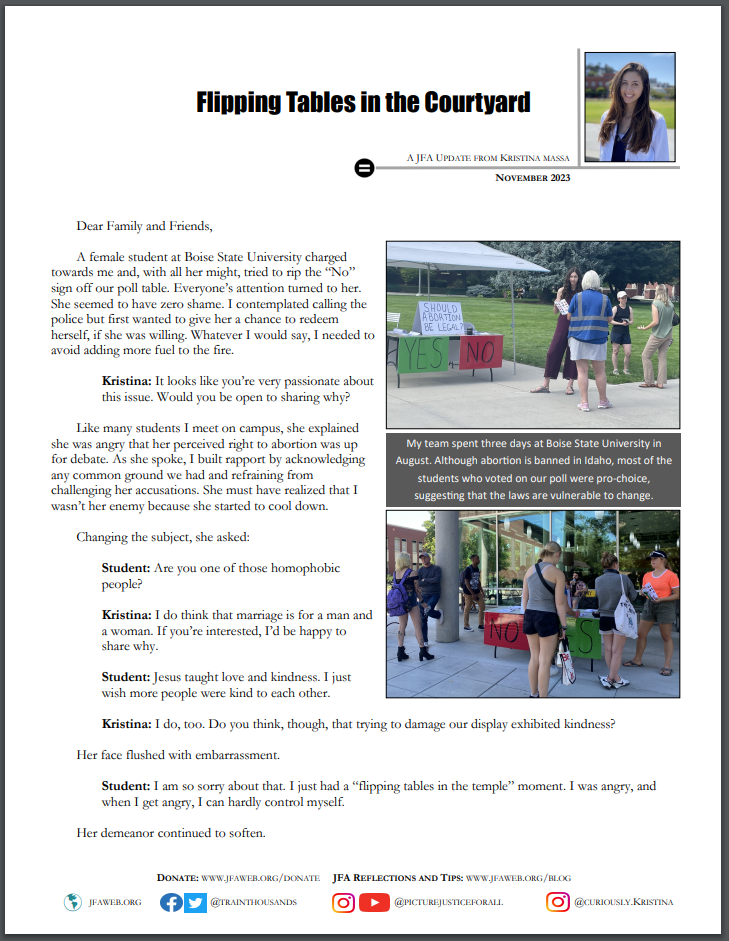I was at the University of Kansas talking to students when I started to receive notifications that Charlie Kirk had been shot. As we continued outreach that day, it was sobering to think that Charlie had been shot for speaking the truth.
I had the privilege of meeting Charlie in March of 2022.
The assassination left many Christians grieving and wondering what is next. Charlie was a man of courage and boldness, and he loved the Lord and our country. His faith was inspiring. His love for his family was touching. His determination to spread the gospel was convicting. America lost a true hero.
Just a few days after Charlie Kirk was murdered, I went to the University of Arkansas to lead an outreach event. A student I’ll call “Tim” walked up to the poll table and signed “Yes” to the question, “Should abortion be legal?” I asked Tim if he had time to share more of his thoughts. This is how our conversation went.
Tim: I believe women should have choices. I think women should be able to choose if they want an abortion or not.
Five volunteers participated in outreach at the University of Arkansas in September of 2025.
Andrea: I agree with you that choice is super important. We should all be able to make choices for ourselves as long as that choice does not harm other human beings. Murder, rape, and child abuse are wrong because those choices harm human beings.
Tim: That is true.
As I began asking Tim about his beliefs, he shared that he believed abortion should be legal for circumstances such as rape and poverty and for a certain duration of pregnancy, but not for all nine months.
Andrea: Yes. Those are hard circumstances for sure. Rape is a horrific crime. Poverty is a difficult situation as well. If a woman feels like she can’t provide for her baby, that is so stressful.
Tim: Yes, definitely.
Andrea: I have a hypothetical situation that I want to bring up. Let’s imagine that there is a mother with a two-year-old that is in a situation where she can’t afford to care for her toddler. Would it be okay for the mother to end the life of her toddler if she feels like that would help her situation?
Tim: No, of course not.
Andrea: I agree with you. This is probably an obvious question, but why can’t that mother kill her child?
Tim: That would be wrong. That toddler is already born and alive.
Andrea: Yes, that toddler is alive, and it is wrong to kill human beings. If the unborn are human beings like the toddler, then should we protect the unborn like we would the toddler?
Tim: Yes, if the unborn are human beings, then they need to be protected, too.
I asked Tim when he believed life began scientifically speaking. He was not sure, so I shared what biology teaches on this question. We discussed the fact that life begins at conception and that the unborn is a living human being that is growing and developing over time.
Tim: Wow! That makes sense. That cleared up a lot of things for me. I am on the fence with this issue. I can see both sides of the argument. I now see that the unborn is a human being, but some women are in challenging situations.
We found common ground about how important it is to care for women in difficult circumstances. Then I asked Tim if he was open to seeing images of abortion, and he said yes.
Tim: Wow. That is horrible.
Andrea: I agree. Do you think abortion is a medical procedure or does an abortion take a life?
Tim: I would say both. Abortion is taking a life, but it is also a medical procedure.
Andrea: Well the purpose of a medical procedure is to promote life, like heart surgery or removing a tumor. Abortion takes a human life.
Tim: That is true. I think women should have a choice, but I am realizing that a woman should not have the choice to kill her unborn baby.
It was energizing to be on campus that day as I spoke with many pro-life students and open-minded pro-choice students. While there is so much darkness in the world, God is moving.
As I have been reflecting on the assassination of Charlie Kirk, I am reminded that God is all-powerful and can use each one of us to impact the world. I believe the reason the world was so impacted by Charlie’s life was because He gave it to the Lord. He told the Lord, “Here I am, send me.” God has called each of us to serve Him in our unique corner of the world. That will look different for each person, but being faithful to serve the Lord where He calls us is what matters.
1 Thessalonians 2:11-12 says, “you know how we exhorted, and comforted, and charged every one of you, as a father does his own children, that you would walk worthy of God who calls you into His own kingdom and glory.” May we be comforted in the Lord and charged to live a surrendered and courageous life.
Thank you for your love and support toward my work with JFA. I appreciate each of you very much.
In Christ,
Andrea

